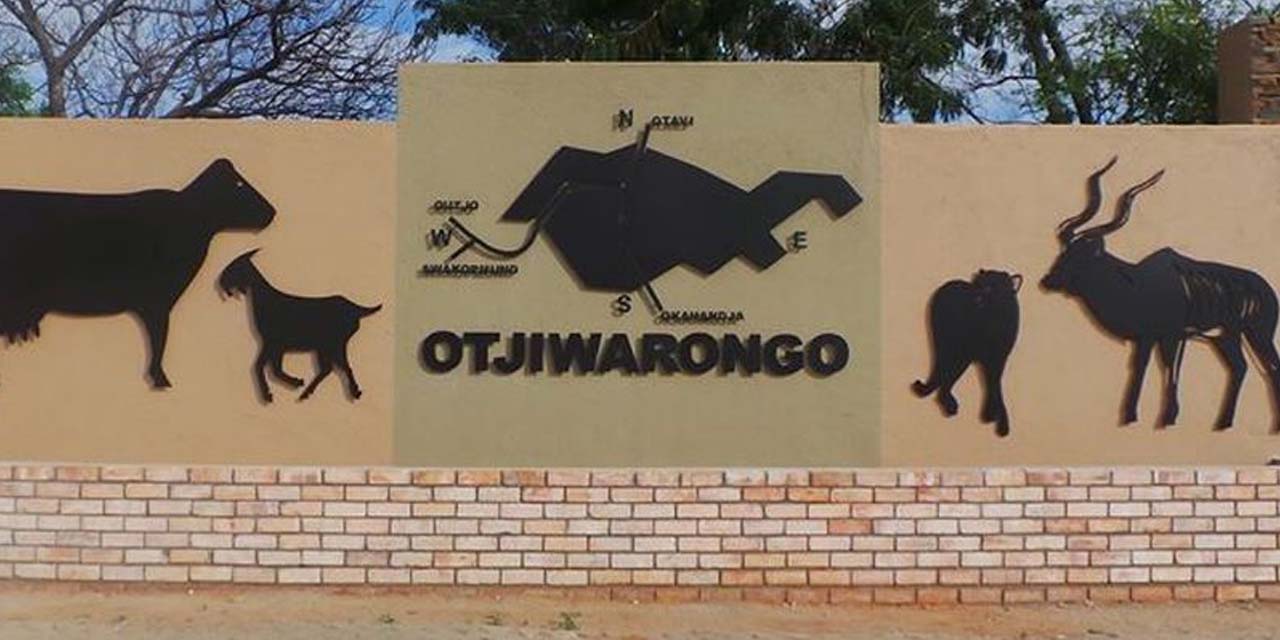Tujoromajo Kasuto
Chaos erupted in Otjiwarongo on Tuesday 20 July as the municipality confiscated about 600 livestock belonging to farmers who have illegally occupied town land
The confiscated livestock were taken to the Showgrounds where a throng of about 40 farmers gathered demanding their livestock back. Farmers warned that if any of the confiscated livestock goes missing or is wounded, the municipality will pay dearly. The farmers also claimed that attempts to communicate with the municipality have fallen on deaf ears or have received unfavorable responses.
Otjiwarongo Municipality’s Chief Emergency Officer, Daniel Pavaza, in an audio circulating on social media, says illegal farming in the town has been ongoing for a prolonged period, thus the municipality decided to confiscate the animals, about 300 goats, 203 sheep and 30 cattle. However, Otjiwarongo Municipality Public Relations Officer, Adelheid Shilongo, told Windhoek Observer that the Council denounces any communication from the farmers. “The Council is only aware of one such petition that was handed over to the Acting Chief Executive Officer( CEO), Frieda Mokotjomela a week ago.”
The farmers in their petition are demanding that the Council allocates them an alternate area for keeping their animals. However, the municipality says the proposed Camp Three, “is strictly planned and demarcated for intensive small-scale agricultural activities like poultry, piggery and crop farming but not animal husbandry.”
According to Shilongo, the farmers have not communicated with them. She further notes that the Council has records where they served all illegal farmers with notice letters to vacate the camp, subsequently, the farmers through an organized group wrote a letter to which they also responded.
Shilongo further states that, “position of Council through its response is that they occupied the land illegally. Council has since planned that area for human settlements, following the demand of housing in Otjiwarongo. It is very unfortunate that the Council’s response is deemed not favourable because Council does not have any alternative area as per their request.”
In spite of this, She maintains that the underlying conditions is that, no one is permitted to practice illegal farming within the local authority area of jurisdiction as per Section 22 of the General Health Regulations of 1969, pertaining to the keeping of livestock in Otjiwarongo local authority jurisdiction area, as well as Section 4(1) of the Model Pound Regulations; Government Notice 191 of 1994 of the Local Authorities Act 1992 (Act No. 23 of 1992).
Section 4(1) of the Model Pound Regulations states any member of the Namibian Police Force or employee of the Council who finds an animal trespassing, shall take or cause that animal to be taken to a pound, and any owner or occupier of property who finds an animal trespassing on his or her property, may take or cause that animal to be taken to the pound.
A pound is a location where stray livestock are kept in a assigned enclosure, until claimed by their owners, or sold to cover the costs of confiscation. Additionally, there have been speculations that some of the farmers have been able to take back their herds. “That action alone was an indication that they want to take the law in their own hands. Council continues to enforce laws and remedial actions will be taken against those who choose to act in contrary,” Shilongo states.
In addition, Shilongo testifies that repeatedly, accidents occur as a result of these illegal farming activities. When this happens, Council takes full responsibility of the cause and the damages. In reaction to this, “Council applies Regulation 22 of the General Health Regulations 121 of 1969 which prohibits the keeping of livestock in a Local Authority of jurisdiction. It is also worth noting that, as per its Town Planning Scheme number 15, Council has planned this area for human settlement and spatial urban development purposes and not for animal husbandly.”




